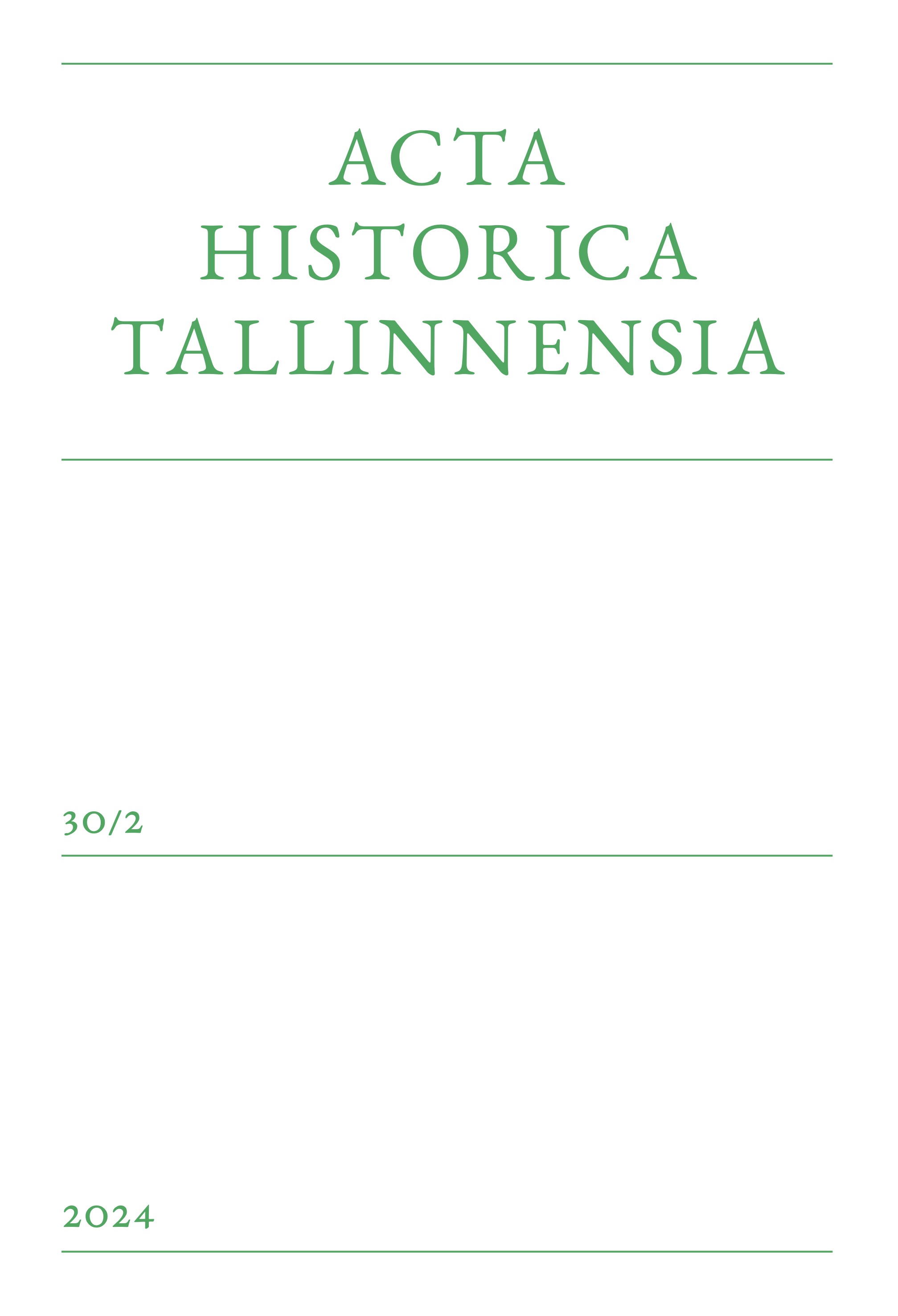Vabadus kui inimõigus. J. G. Eiseni vabadusekäsitlusest Peterburi Vaba Ökonoomilise Seltsi 1766. a võistlustööde kontekstis
Freedom as a Human Right: J. G. Eisen’s Conception of Freedom in the Context of the 1766 Competition Essays of the Free Economic Society of Saint Petersburg
Author(s): Pärtel PiirimäeSubject(s): History, Cultural history, History of ideas, 18th Century
Published by: Teaduste Akadeemia Kirjastus
Keywords: enlightenment; history of thought; Johann Georg Eisen (1717–1779); freedom; serfdom; St. Petersburg Free Economic Society; Catherine II; Baltic countries;
Summary/Abstract: The article discusses various uses of the concept of “freedom” in the debate on serfdom, which was sparked by the 1766 essay competition held by the Free Economic Society of Saint Petersburg. An analysis of the competition entries helps place Enlightenment ideas in the Baltic region within the broader context of Russian imperial and European Enlightenment, as entries were submitted by authors from across Europe, including several works by writers from Livonia. The article focuses on the concept of freedom as understood by Johann Georg Eisen, pastor of Torma and one of the earliest critics of serfdom, whose radical views stand out starkly when compared with the freedom concepts in the competition’s winning essays by Beardé del’Abbaye, J. J. L. Graslin, J. C. Wöllner, E.J. von Meck, and A.J. Polenov. Eisen was not the only author who spoke of freedom and property as natural or human rights. However, while other authors considered the loss of freedom for certain social groups (i.e., serf peasants) inevitable, and the restoration of that freedom, at least in the near future, impossible, Eisen believed that improving society and achieving general welfare was impossible without freedom for all individuals. The article argues that Eisen’s understanding of freedom as inalienable human right is based on a fundamentally different moral anthropology from that of other authors, leading to opposing views on the possibility of establishing universal personal freedom within their contemporary society. At the core of the debate is the question of whether freedom is a prerequisite for a person’s moral, intellectual, and economic self-improvement, or whether freedom is only beneficial after achieving a certain level of moral maturity. Thus, already in the 1760s, a long-standing debate was ignited within the Baltic Enlightenment between a more moderate and a more radical approach — on whether peasants should first be educated to prepare them for freedom without threatening social order, or rather be freed first so that they could be educated in the first place. Like other authors, Eisen set limits on freedom. Freedom as a human right did not entail the right to arbitrarily pursue any individual goals, as the primary aim was the attainment of social harmony, in which each estate fulfils its distinct and exclusive role. However, social welfare, in his view, was not possible unless every individual could strive for personal happiness within the economic framework appropriate to their estate. In Eisen’s worldview, therefore, general welfare was not based on the care of rulers and lords for their subordinates, as the paternalistic worldview suggested, but rather on contractual relationships driven by the legitimate self-interest of all parties involved. At the same time, Eisen’s “grand plan” can also be described as a social utopia, in which the functions of all estates are precisely delineated so that they do not compete over limited resources but instead make a complementary and harmonious contribution to society.
Journal: Acta Historica Tallinnensia
- Issue Year: 30/2024
- Issue No: 2
- Page Range: 212-252
- Page Count: 41
- Language: Estonian

